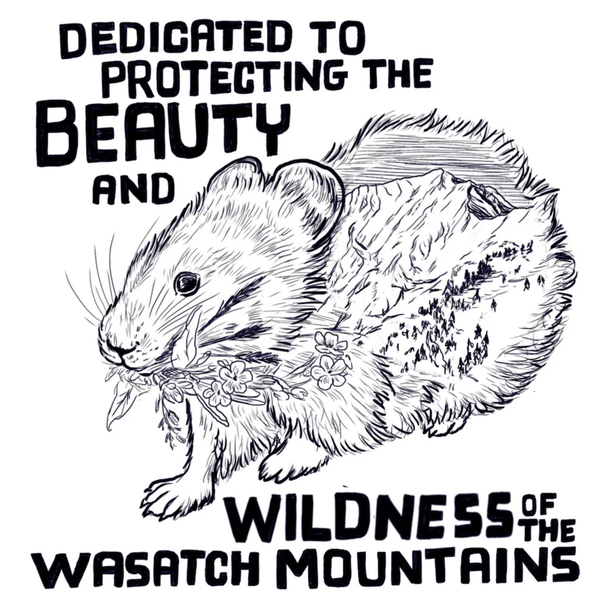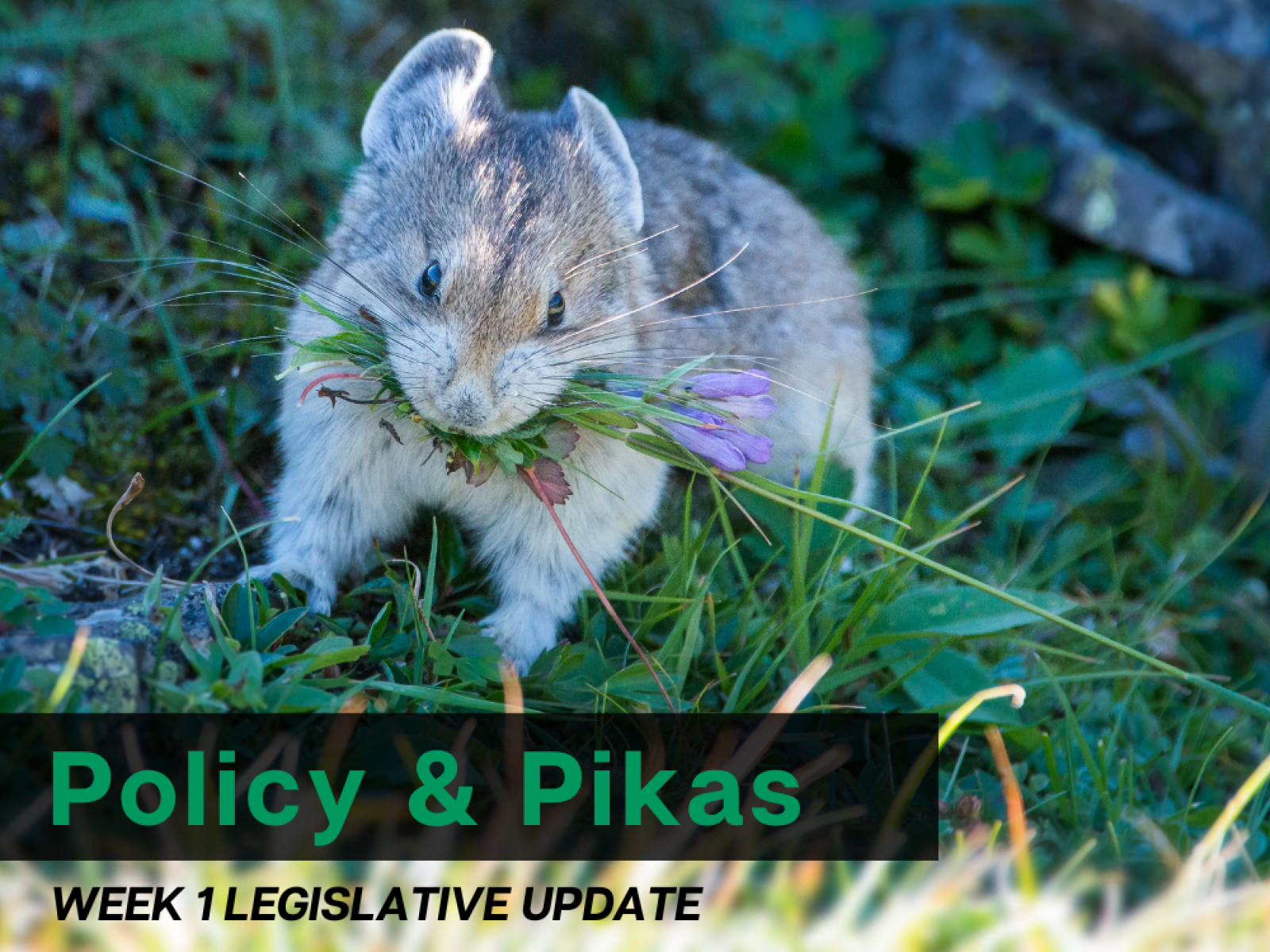Policy shapes many of the issues confronting the Wasatch. We've recently brought on two new Policy Associates who will help shed light on some of that policy. Save Our Canyons would like to welcome Crystal and Katie, the hosts of Policy and Pikas.
Why pikas? Pikas are a critical part of ecosystems across the West, including here in Utah. They help scientists detect the ecological effects of climate change because of their extreme sensitivity to warming temperatures. We named our legislative updates after the pika as an ode to our furry conservationists.

Week one of the 2023 legislative session is officially over. The 45-day session will run from January 17 to March 3. So far some 350 bills have been proposed, and hundreds more are expected.
This session, we’re primarily focusing on bills that support an equitable transportation system and protect the air, water, and forests of the Wasatch Mountains.
Transportation:
We support a robust transportation system that can bring people from metropolitan areas to the canyons. In this same vein, we oppose the proposed gondola up Little Cottonwood Canyon, which is neither scalable nor equitable. We’ll be keeping an eye out for any bills that will appropriate funding for the gondola and hope to see funding for a better bus system to the canyons and for mobility hubs.
Air and water:
We’re keeping an eye on proposed bills involving sand and gravel pit operations, specifically the proposed 634-acre gravel mine in Parley’s Canyon. We noted this recent op-ed from Rep. Christofferson, where he expresses that our residents need more gravel pits close to home. Dust, air quality, and decreased property values are some of the downfalls of living near a gravel pit.
In order to mitigate the dust from the proposed gravel pit in Parley’s Canyon, we’re looking at a tremendous use of water, estimated at 144 truck trips per day to transport between 600 million and 1 billion gallons of water. Given the pressures that the Wasatch is facing, and the dire need to route and keep more water in the Great Salt Lake, this is an imprudent use of our precious water resources.
We’re also on the watch for a major forest logging proposal, in response to the ridiculous and unfounded claims that “overgrown” forests are guzzling too much water from the Great Salt Lake.
Land management:
We’re on the lookout for bills that support land management projects through sound policy and adequate funding. These projects could include wildfire prevention, watershed protection, climate adaptation, and improvements of forest health and wildlife habitat. In Senate Bill 5, we’d like to see an increase in funds for the shared stewardship of public lands, from $1.7 million to $5 million, given all of the work that needs to be done in the Wasatch.
Government transparency:
As we closely follow environmental policy proposed by our local officials, we are all for government transparency! We support House Bill 97, which modifies the Government Records Access and Management Act to include records on a personal electronic device for officers and government employees.
Ways to get involved:
- Subscribe to our mailing list to stay up-to-date during the session.
- Find your legislator and write a letter, reach out through social media, or speak with them face-to-face! Even if you don’t have a specific ask, it’s always helpful to let them know your general concerns this legislative session.
- Attend a committee meeting (like the Natural Resources Committee) and share your personal stories with a public comment (in-person or via Zoom). Find the schedule and agenda here.
- Follow along with proposed 2023 environmental legislation with this bill tracker from Sierra Club Utah!
- Join us on February 1 from 6 to 8 pm for our Writing for the Wasatch Workshop at the Patagonia Outlet (2292 Highland Dr., Salt Lake City, UT 84106). You’ll have an opportunity to contact Governor Cox about protecting the Wasatch Mountains, through both written comments and art.
Pika Fact of the Week: Pikas don’t hibernate. They live under the snow, which helps them stay warm throughout the winter.


